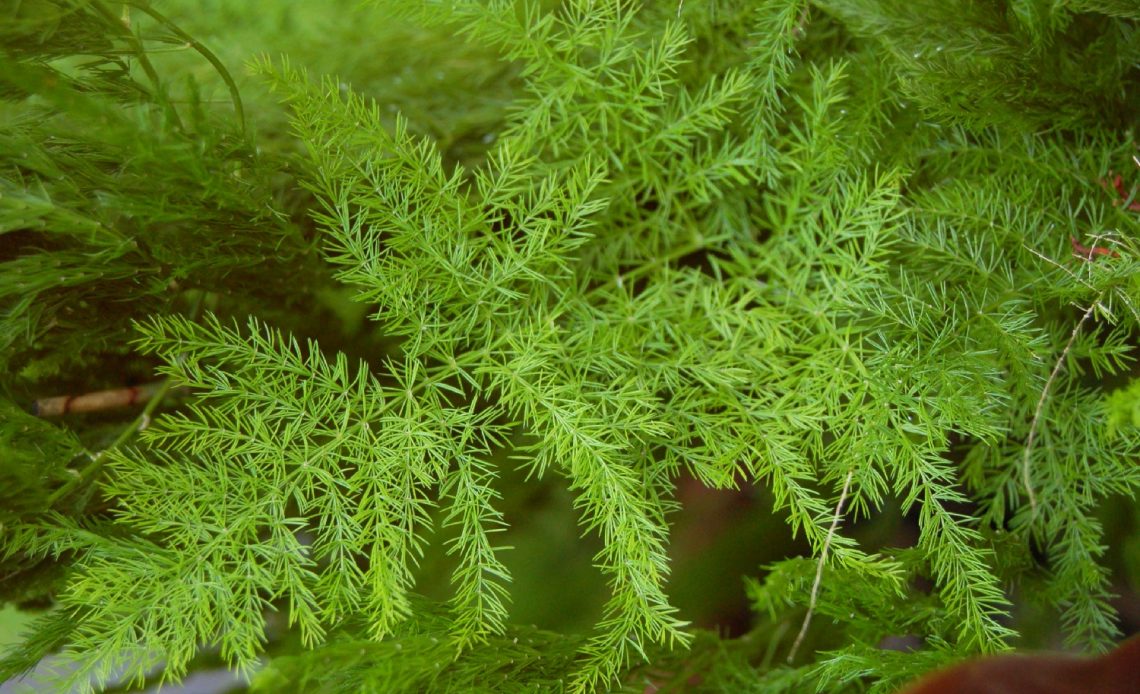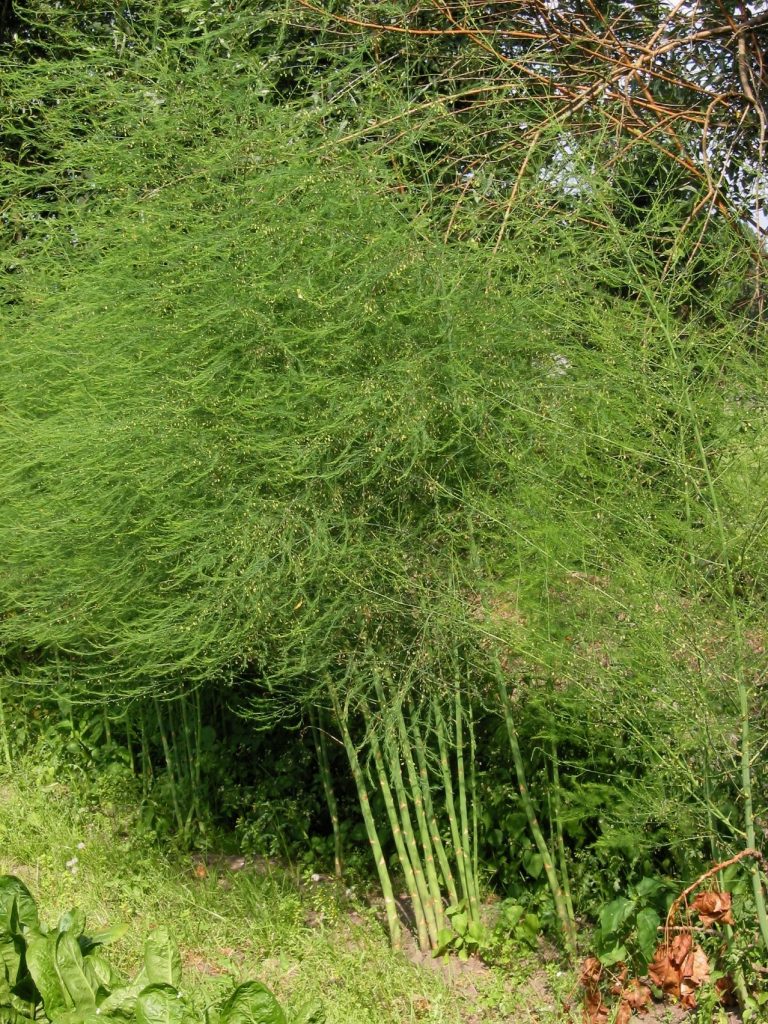

We’re here to help! Wild Yards is a completely free website that is 100% dedicated to helping you create a wildlife-friendly, sustainable yard. Read more
WildYards is reader-supported. When you buy a product through a link on our site, we may earn a comission. Every product is independently selected by our (obsessive) editors and our reviews are unbiased and objective. Read more about our mission or our privacy policy.
Asparagus is a favorite vegetable among many of us – it’s a staple part of many tasty dishes. Many gardeners and vegetable growers consider this strong-tasting perennial safe from animals – but is this entirely true? For example, do deer eat asparagus?
Deer will eat asparagus, but only if they have to. Very few plants are truly deer-resistant, and asparagus is no exception. While it isn’t their favorite food, deer will eat asparagus when there is not much else available to them – or if they are genuinely starving. Overall, your asparagus crop is likely safe against deer intervention.
Is asparagus a deer-resistant vegetable?
Although some regard asparagus as deer-resistant, this isn’t entirely true. Deer have very specific taste and texture preferences – and, when given a choice between asparagus and bland or sweet-tasting food – such as acorns, pumpkins, and sweet potatoes, for example – they will always avoid the asparagus.
Of course, deer may not always have access to their favorite foods. Depending on the season, area, and weather, it can be very difficult for them to come across any food at all. So, they will eat whatever is available to them, even asparagus. There’s even some evidence to suggest the age of the asparagus plant may influence whether or not a deer takes a taste.
Why does the age of asparagus matter to deer?
Aside from eating them when they absolutely have to (i.e. there are little to no other food options around), young asparagus shoots may appeal to deer more than mature plants. That’s because baby shoots of asparagus taste much sweeter than their fully-grown brethren – deer prefer sweet and bland flavors to strong or even sour tastes.
If you are just starting to grow asparagus in your garden, it may be worth protecting it against roving deer, at least to begin with. Deer visiting you are more likely to munch on bland plants such as hibiscus, but sweet, young asparagus shoots can attract deer in rare cases.
Remember, too, that deer are not the only wild animals visiting your yard that may be eating your asparagus. If you’re already losing vegetables early on in the spring, the chances are that it is another vegetable fiend behind it – you can’t always blame it on the deer!

What other animals eat asparagus?
Rabbits, squirrels, and chickens will all eat asparagus occasionally. Like deer, these animals are not too picky about asparagus plants unless other food is scarce.
Depending on where you live in the US, you’re more likely to find asparagus proving popular with skunks and even nine-banded armadillos! The latter may find your asparagus crops appealing if you live towards the southeast, though these vegetable munchers are appearing more and more towards the north.
Should I protect my asparagus against deer?
While deer won’t normally take an instant fancy to asparagus, it’s still worth protecting your crops against wild visitors.
One of the easiest things that you can do to protect your asparagus is by keeping a fence around them, between six and ten feet tall being the optimal size. Deer may leap over eight feet in the air if they know they can access food on the other side of a partition, so do take caution.
A more permanent and efficient solution would also be to build a wall or an opaque fence around the asparagus. If you are going to do this, then try to build a bigger section so that you have plenty of room to grow your deer-enticing fruits and vegetables safely! It’s also worth considering bolstering your outer fencing or walls, perhaps with an additional perimeter line, or by knocking down your current border and increasing the height.
You could also try deterring deer visitors with technology. Try putting up infrared lights or speakers to influence a flight response – you can set these up to produce random noises/lights during the night.
For deer specifically, you could also grow asparagus near plants they actively avoid.
Plants such as rhubarb, for example, are deer-safe (as they can be toxic to digest). Elephant ear plants, too, offer no benefit or appeal to deer and will help to keep visiting animals away from your asparagus.
Does asparagus have any nutritional value for deer?
Regardless of taste, asparagus is high in various nutrients that may prove helpful to deer – it contains vitamins such as vitamin A, vitamin C, vitamin E, vitamin K, and some B vitamins and complexes (such as folate). It is also high in iron, fiber, and potassium.
Believe it or not, asparagus is also very high in water content. Although deer will not get all of the water they need from an asparagus plant, eating it will help keep them hydrated. This is especially important in areas with no obvious or easy-to-access water sources.
Since asparagus grows during the spring and summer, these straight vegetables can be a real life-saver in a serious drought. It’ll also explain why your asparagus keeps going missing if things are especially arid nearby.
So… asparagus isn’t deer resistant?
No – regardless of what you may have read or heard, it’s never wise to assume asparagus is entirely resistant to deer interest. Rather, it’s extremely unlikely they will feast purely on these plants. In the event of a severe lack of water or food close by, deer will eat whatever they can get.
It is always best to protect your asparagus crops from wildlife – whether it’s setting up stronger fencing or planting vegetables and flowers that act as natural deterrents. It’s also worth warning animals away humanely from your vegetables, such as with noise or light.
If you want to attract deer to your yard, you could always leave out other more enticing foods for them – such as sunflower seeds, mushrooms, and bananas! Grow asparagus for yourself – and unless it’s a very fresh crop, don’t worry too much about deer snaffling it all up.
